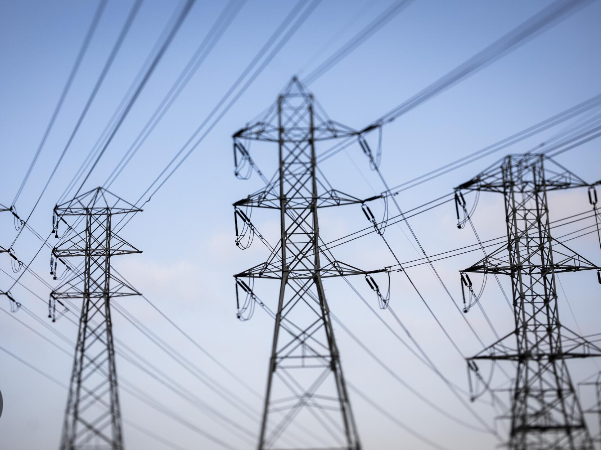
Nigerians React as Hilarious Tweets Highlight the Irony of ‘Needing Light to Load Light’ and ‘Data to Buy Data’

The internet went into a fit of laughter and collective agreement this week after two Nigerian Twitter users hilariously captured the absurd yet all-too-real frustrations of modern life in the country. In a post that has since gone viral, user @fareeforreal, known as Faree Ferrari, expressed her exasperation with the frustrating reality of Nigeria’s prepaid electricity system, writing: “The concept of needing light to load light on prepaid is so stupid.”
Almost immediately, another user, @TamiloreO, who goes by Tamilore Trillions, quote-tweeted her post with an equally biting response: “I raise you the concept of needing data to buy data.” The exchange exploded across Nigerian social media, triggering a flood of memes, comments, and debates that exposed the ironic everyday inconveniences Nigerians face in a society where basic utilities often feel like riddles designed by a trickster god.
Within hours, the thread had gathered thousands of likes and retweets, with users chiming in to add their own examples of the irony-laden inconveniences they endure. One user wrote, “Or the concept of needing airtime to call customer care about missing airtime.” Another added, “Let’s not forget needing a network to complain about network failure.” The posts struck such a deep chord because they mirrored what millions of Nigerians deal with daily — the maddening contradictions embedded in systems that were supposed to make life easier but somehow end up more complicated.
For those unfamiliar, Nigeria’s prepaid electricity system, widely adopted in urban centers over the last decade, requires users to purchase energy credits that are then loaded onto a meter using a unique code. But in a twist of irony, the system often depends on electricity to power the very meter or digital interface needed to load those credits. If there’s a blackout — which is frequent in most areas — customers can find themselves trapped in an absurd loop: unable to load electricity because they need electricity to load it.
Social media users wasted no time in turning the situation into comedy gold. Jokes poured in about people using flashlight apps and candles to “find light for their light,” while others mocked the system’s inefficiency. “Imagine begging your neighbor for small light just to load your own light,” one user quipped, attaching a meme of someone charging their meter with a power bank. But beyond the humor, the frustration was evident. Many Nigerians used the viral post as an opportunity to vent about how technological systems often fail to account for the country’s erratic infrastructure.
Tamilore’s response, though brief, hit another nerve entirely. The irony of needing mobile data to buy mobile data is one that nearly every smartphone user in Nigeria has experienced. For those who rely on digital platforms to top up their internet bundles, a sudden data exhaustion can mean they’re locked out of the very service they need to purchase more. Unless one has saved an offline USSD code or can borrow a hotspot from a friend, they’re left stranded — a digital purgatory that feels as ridiculous as it is infuriating.
“You run out of data, and your only hope to buy more is to use data. It’s like the system is mocking you,” wrote another user, echoing Tamilore’s sentiment. Others piled on with relatable stories — one person joked about “borrowing data to buy data,” while another said, “My own is worse. My bank app needs data to buy data, but my data has finished, and my SIM card is on DND. I just log off from life at that point.”
As these jokes spread, the exchange between Faree and Tamilore became a symbol of Nigeria’s unique brand of resilience — the ability to laugh in the face of absurdity. It’s a reflection of a society where humor often serves as a coping mechanism for systemic inefficiencies. Whether it’s erratic power supply, patchy mobile networks, or endless customer service loops, Nigerians have learned to turn frustration into laughter.
Some users also took the conversation in a more reflective direction, pointing out how the “light and data” problem encapsulates the deeper challenges of development in Nigeria. “We live in a country where basic services depend on other broken services,” wrote a user. “It’s like a chain of dysfunction where nothing can work without something else that doesn’t work.” Another noted that the prepaid electricity and data paradoxes are perfect examples of how digital convenience often fails in contexts where infrastructure is unreliable.
Even brands joined the online banter. A popular telecom company playfully tweeted, “We promise you’ll never need data to buy data… well, except the data you used to read this tweet.” Meanwhile, a power company’s social media account replied to the original thread with a cheeky, “We’re working on ensuring you never need light to load light again — someday.” The tongue-in-cheek humor only fueled more reactions, showing how deeply the conversation had entered the national mood.
Still, beneath the laughter lies a sobering truth. The viral conversation highlights how technological advancement in Nigeria often collides with inconsistent infrastructure. While systems like prepaid metering and online data top-ups were designed for efficiency, their implementation hasn’t always considered real-world limitations. Power cuts remain frequent, internet connectivity unreliable, and digital processes dependent on factors beyond the average citizen’s control. The result is a cycle where innovation becomes entangled in irony — tools meant to simplify life end up complicating it.
Yet, as always, Nigerians find a way to adapt. In response to Faree’s tweet, one user posted a photo of a small rechargeable lamp beside a prepaid meter, captioned, “This is my light for loading light.” Another shared a tip: “Always save your network’s USSD code. It’s your lifeline when you run out of data in the wilderness.” In typical fashion, the same community that complains also finds solutions, using humor and creativity to make sense of chaos.
By the end of the day, both tweets had transcended mere jokes to become social commentary. They perfectly summed up the contradictions of modern living in a developing society — where access to essential services often depends on the availability of the very thing you’re trying to buy. The posts may have started as jokes, but they spoke volumes about the resilience, ingenuity, and unshakable humor of Nigerians navigating a system that constantly tests their patience.
As one commenter aptly put it, “Only in Nigeria can you need what you don’t have to get what you need.” And maybe that’s the essence of life in the country — a daily dance between irony and innovation, where even the most frustrating realities can spark laughter and viral conversations. In a world that sometimes feels upside down, at least Nigerians still know how to find the joke in the madness.


